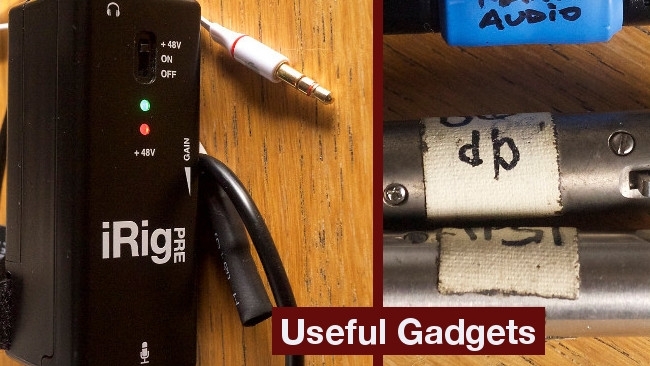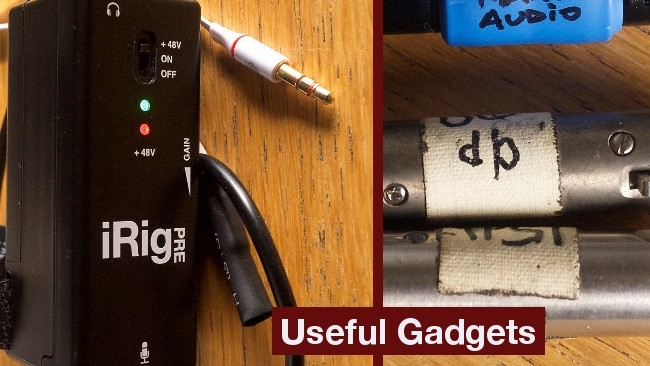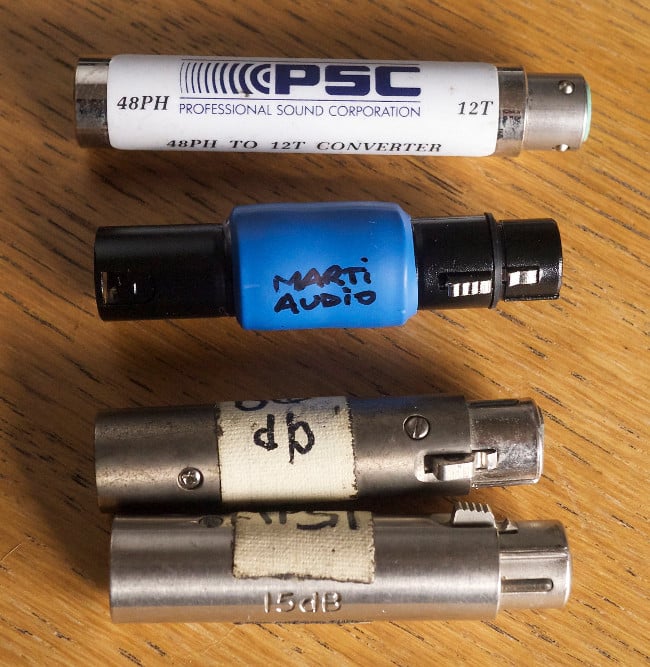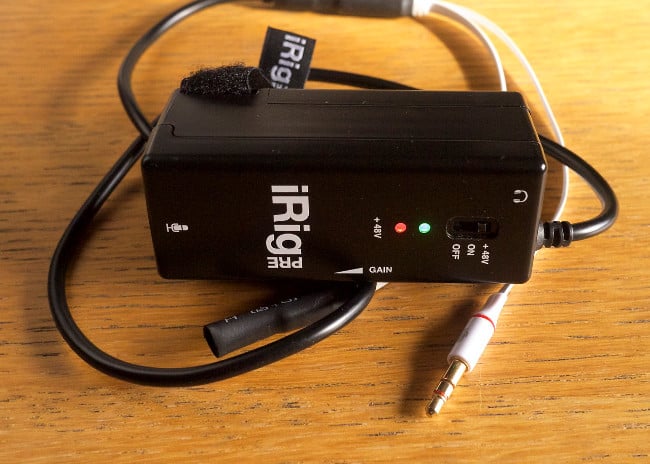

Roland Denning shares some often overlooked accessories that are mainstays in his sound kit.
There are some things in my sound kit that I take for granted, but make life so much easier. Here are three XLR adapter barrels and, if they look a bit battered in the photo, that's because they spend their life on the road.

48v Phantom Power-to-12v T-Power Convertor
Most professional condenser mics need a 48v 'phantom' power supply and almost all professional video cameras, audio recorders and mixers supply it through their XLR inputs. (The exception is personal/lavalier mics, which need a lower voltage, usually supplied through an internal power supply or via a minijack mic input that offers 'plug-in power').
However, older mics used T-power, a 12 volt system. This is not only a lower voltage, but is supplied across pins 1 and 2 of the XLR rather than pin 1 and earth for phantom power. Be warned: a dynamic or ribbon mic can be damaged connecting to T-powered input.
Why should we care about a semi-obsolete system? Simply because there are many excellent T-powered mics still around (they sound just as good as phantom-powered) and you may well find a bargain-priced Sennheiser 416 on the second-hand market.
This in-line convertor comes from PSC and costs around £35 + VAT. It works great.
Booster
Ribbon and dynamic mics can sound great, but sometimes their output is too low, particularly for budget-priced recorders. This great little gadget takes the 48v power from a mic input (ribbon and dynamic mics don't need powering) and uses it to power a pre-amp built-in to the barrel of the unit. It boosts by around 19 to 25db, but obviously it doesn't work with condenser mics that need a 48v supply, as it's using that power itself.
Similar products are the Triton FetHead or the Cloudlifter. The Marti version, hand-made in the UK, is the cheapest and works great. £35.
Line-to-Mic Pad
Sometimes rather than boosting a mic, you need to do the opposite – attenuate it – typically when you are plugging a line output into a camera or a recorder that only has a mic input. If you don't do this, the input will overload horribly. There are numerous XLR versions out there ranging from -20 to -50db attenuation, some offering three settings in one (a setting around -40db is the most useful). They come in minijack versions, too. Under £20.
On the subject of mic powering, if you need to plug a 48v condenser XLR mic into a minjack input that lacks phantom power, the IK Rig PRE is a great little pre-amp that has a switchable 48v power supply.

It is actually designed for iPhones and iPads, but you can easily adapt it for a regular stereo minijack input either by rewiring it or using a cheap adapter cable as I have done. It also is useful for just boosting the signal if, say, you are using a camera with noisy pre-amps. Under £35.
There are also adapters around that work the other way – powering a 'plug-in power' minijack mic off a 48v XLR input.
Any other suggestions for invaluable audio gadgets? Let us know in the comments!
Tags: Audio


Comments